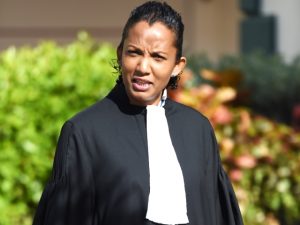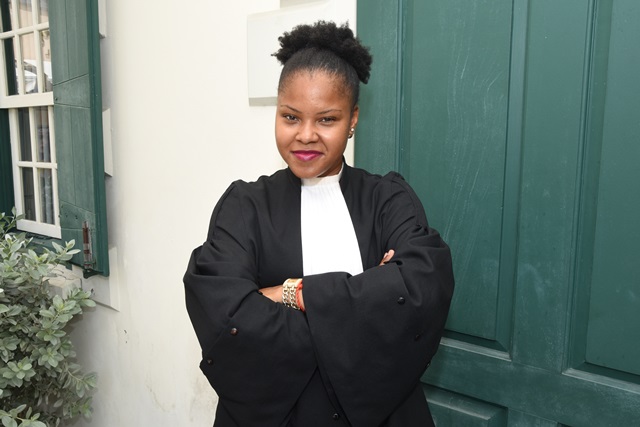Source Today Newspaper
GREAT BAY – The suspects in the Casablanca human trafficking case should all be acquitted, their attorneys Sjamira Roseburg and Shaira Bommel told the Court in First Instance on Wednesday.
The attorneys said that there is insufficient legal and convincing evidence for a conviction. Secondary, they asked the court to drop all charges “because clients have been justly convinced that by following the policy established by the prosecutor’s office and the government there could not be any crime.” In case the court concludes that there is evidence for a conviction, the attorneys ask for a judicial pardon “considering the tolerance policy the government has used for years.”
Lastly, the attorneys suggested to the court that it should hold the government criminally responsible as well. “After all, it is first and foremost the government that benefits financially from the work of these ladies.”
The defendants in the case, Casablanca-director McQuincy R., Jessy R., David e. and Carmen P. are accused of human trafficking, robbing the prostitutes in their establishment of their freedom, exploitation and firearm possession. On Wednesday, the court spent the whole day on the case.

The attorneys presented the question whether the brothels have to work with foreign women as a crucial one. “The local authorities have always considered this as inherent and necessary to the exploitation.
The local government has consciously developed a policy for the admissibility of these ladies as a protection against unregulated sex clubs.”
If this is a case of criminal actions, then they are the direct result of the bona fide way of doing business of tolerated sex clubs, the attorneys said. “They have flourished with the approval and active control of the government. The current unclear policy can be labeled as inconsistent, halfheartedly and even hypocrite since the government is the first to financially benefit from the work of these ladies.”
Roseburg and Bommel said that Casablanca has always abided by the rules. “Until a public prosecutor to the amazement of many, decided to do selective searches, to confiscate items, to lock our clients up and to prosecute them.”
The attorneys noted that countries like the Dominican Republic and Colombia as less prosperous than St. Maarten and that many women in those countries are in an economically weaker position. “But because they are always in an economically weaker position than people in St. Maarten it is not correct to assume just like that that there is human trafficking. These are business-like agreements with the women and there is no improper pressure.”
The attorneys emphasized that only McQuicy R. and Jessy R. were tasked with the management of Casablanca. David E., a cousin of McQuincy, has never worked for the club and was never part of its management team. “Mrs. Carmen P. has never denied that she owns the building but she was never involved in the business operations. After the death of her son David in 2009 she passed the baton on to her children McQuincy and Jessy.”
The attorneys said that David E. and Carmen P. ought to be acquitted of all charges, because they know nothing about human trafficking or the trafficking in women.
Per woman $1,300 must be paid to the government,” Roseburg and Bommel noted. “Is that not aimed at exploitation? In Curacao the amount is 300 guilders. The club has to advance the $1,300 and if a woman does not arrive, they lose that money.”
The attorneys furthermore emphasize that Casablanca makes money from letting rooms and that customers are paying for condoms instead of the women. They also contested the notion that the women hardly earn any money because of exaggerated deductions and fines.
“After paying the amount due to the government and other costs, they kept more money than women do in the Netherlands where a 60-40 ratio between the owner of a brothel and the prostitute is considered in alignment with the opting-in regulation. That a small minority of the women have said that they kept less has to do with their appearance and effort.”
The attorneys said that the dossier does not support the charge that the women were limited in their movements. They noted that the brothel owners are not only responsible for the safety of the women. “They also had to be a guarantor that the women would not disappear as illegals into the community. That could get in the way of a future permit.”
In their fifty-plus page plea the attorneys addressed the statements of all 23 women who, according to the prosecution, have stated that they were the victim of human trafficking and exploitation, asking the court to exclude most of them from evidence.






























